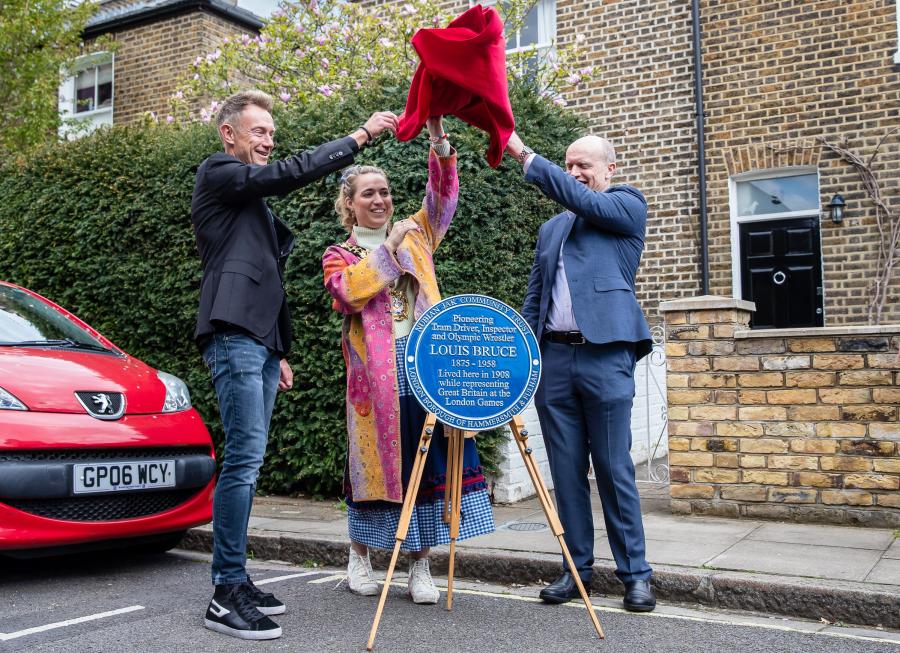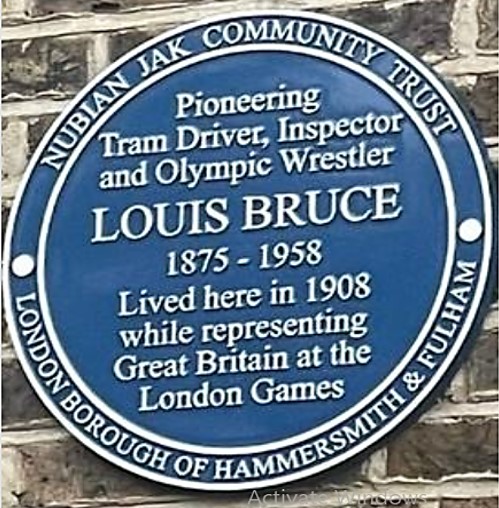

Louis Bruce
Over 100 years ago, Olympian Harry Edward, who had won two bronze medals at the 1920 Antwerp Olympic Games, was recorded as Britain’s first Black Olympian. However, when one digs deeper into the archives and untold personal stories, so-called “firsts” are often misleading.
According to recently discovered archive records, Louis Bruce, a heavyweight wrestler, was one of 53 British wrestlers who participated in the 1908 London Olympic Games. He reached the second round of the 73kg freestyle division.
Louis Bruce, born on 17 December 1875 in Edinburgh, was the son of Jane Doney, a widow whose husband’s name was not recorded on his birth certificate. Shortly after his birth, Louis and his six older sisters moved to Plymouth, where they were raised by their mother. This early family life would shape Louis’s character and resilience, setting the stage for his self-belief and future achievements.
Recognizing the increasing importance of transport in a mobile society, Bruce made a significant move to London. There in the capital, he became a steam locomotive driver, a role that was not only groundbreaking at the time, but also crucial for the city's development. His dedication and skill would help him achieve the senior rank of inspector.
According to the 1908 census, Louis Bruce lived at 7 St Peter’s Grove, Hammersmith, when he represented Britain at the London Olympic Games. The Hammersmith Amateur Wrestling Club, whose address was The Arches, Cambridge House, 29 Cambridge Road, Hammersmith, was where Louis Bruce did most of his training leading up to the London 1908 Games.
On Tuesday, 25 April 2023, the London borough of Hammersmith & Fulham, in partnership with Nubian Jak Community Trust, recognised the life of Louis Bruce with a blue heritage plaque at his former address.
Location: 7 St Peter’s Grove, Hammersmith, W6 9AY
“Every day, we are learning more and more about Britain’s rich and diverse past. To that, we can add the name of Louise Bruce, who was representing Britain in Olympic competition 40 years before the arrival of the Windrush.” Dr Jak Beula - CEO of Nubian Jak Community Trust

